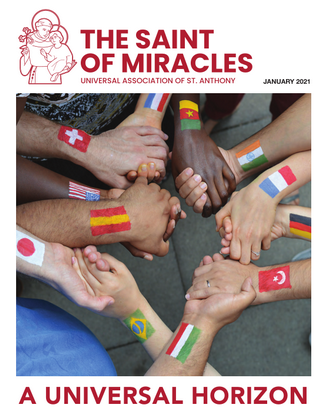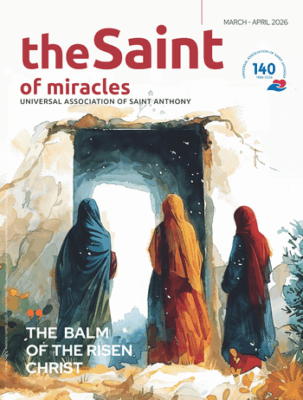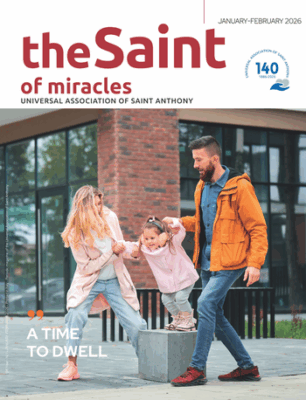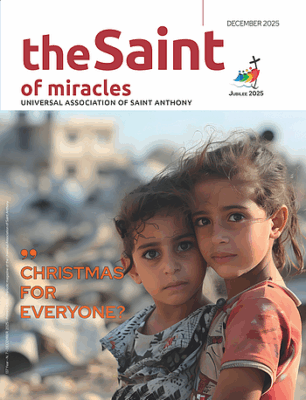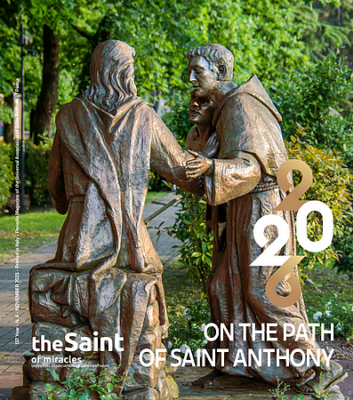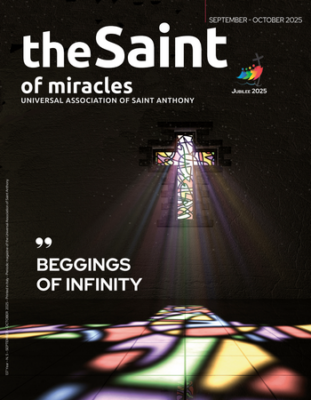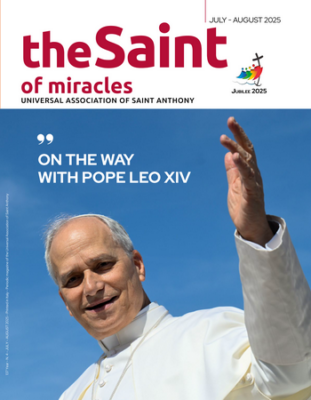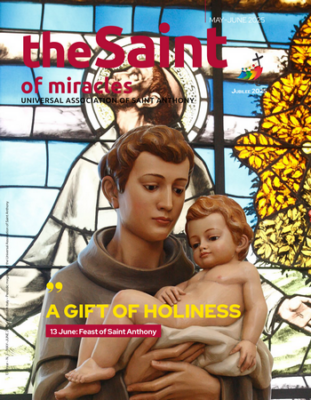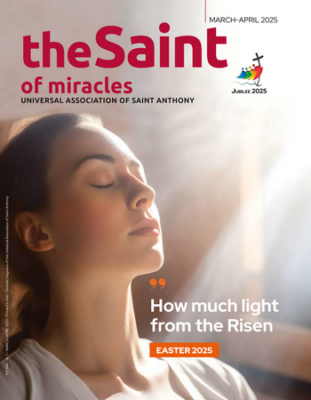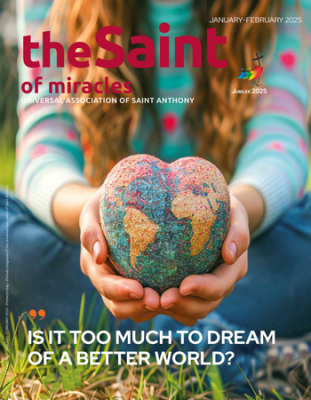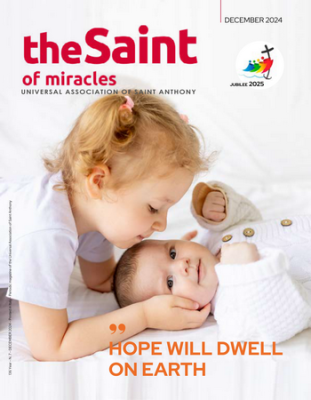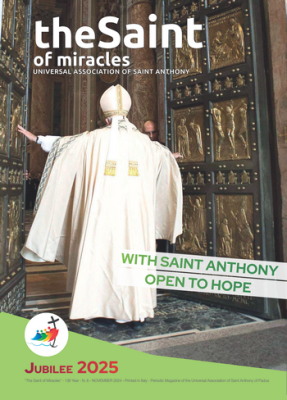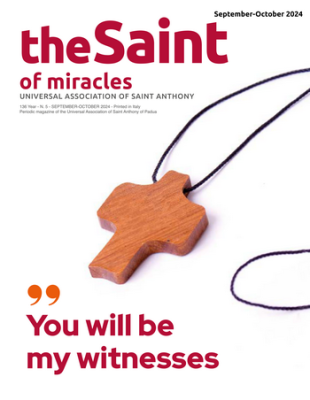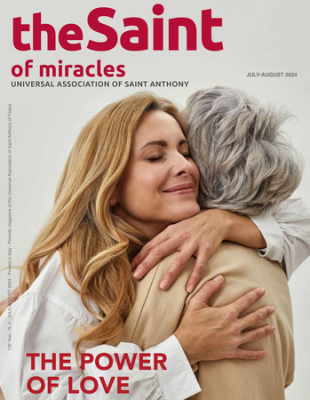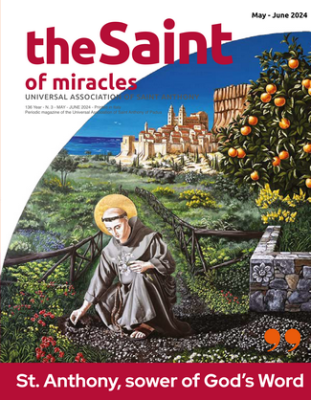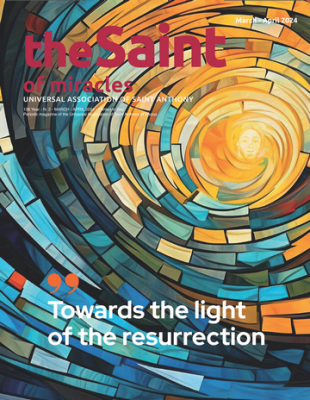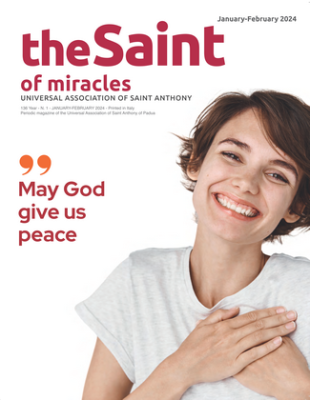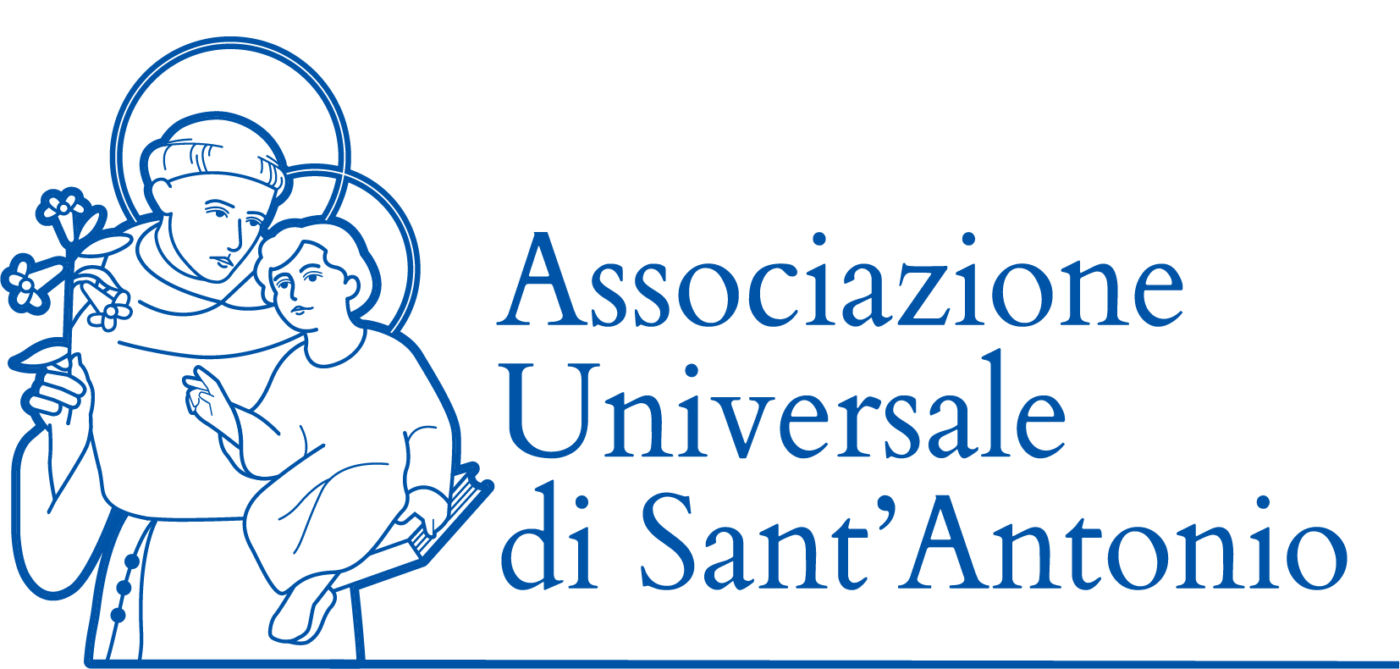Year 133 - January 2021Find out more
Freedom implies obedience
fr. Antonio Ramina

To speak about freedom is like treading on sacred ground. Effectively it is one of the most important characteristics of a human being, so important it risks to be miss understood. So before starting we should say that freedom is not just a “characteristic” of a human being but that it identifies him as a real person who is responsible of his actions. Let’s consider freedom by lending a listening ear to the word of Saint Anthony. “Freedom is the greatest happiness but you will not enjoy it if you do not bend the neck of pride to the chain of humility and do not put carnal desires in irons of mortification” (XV after Pentecost, 4).
The Saint declares at first that freedom is the greatest happiness but he immediately underlines a quality apparently paradoxical and even contradictory: human freedom is linked to limits and to constrictions. Who knows how many times we have been told that freedom is not doing as you would like! The freedom which makes us happy is not a whim. Saint Anthony reminds us that if we want to enjoy happiness of freedom we must renounce pride and choose humility; we must recognize our egoistic impulses and prevent them from exploding into disorder.
It really seems that the Saint knows very well the risk of confusing freedom with mere permissiveness; for this reason he wants to clarify that freedom is at the height of a human being only if he chooses to impose limitations on himself. We can understand his intuition reading his words: “As waters are closed in a pond so that they will not flow, in the same way in the world the freedom on sinners is limited so that they will not enjoy earthly delights as they would like” (V after Pentecost, 4). Here the Saint underlines that the persons who have taken the path of evil need to be “obliged” and to be orientated almost by force to take the way of goodness. They are not able to do it by themselves.
There are some easy pleasures which can harm them; on the contrary some difficult Choices can be good for them. It is just like that; sometimes it is easy to do what is bad for us while it can be difficult to do what is good for us. Here another deep intuition: in order that a person could be able to fully enjoy happiness of freedom this freedom has to be limited, re-educated and accompanied down the path of goodness. Let’s analyse these apparently contradictory intuitions. Is it not a contradiction to affirm that one needs to obey to be free? We would say: If I want to be free I do not have to obey anyone. But no! Here is what Saint Anthony says: “As the path of poverty and obedience is narrow they give you freedom; because poverty makes you rich and obedience makes you free” (Saint John Evangelist 3).
Poverty that is the contrary of richness in reality makes you rich. Obedience that seems to be lack of freedom in reality makes you free. What does it mean? That there are some “narrow passages” that we must cross because they are the place of regeneration and of new birth, to be free we must cross the narrow path of the obedience. To whom must we obey? Every one could have a long list of persons or situations: a husband or a wife, a friend or a colleague... Our life is based on reciprocal obedience and on reciprocal listening. When someone does what he wants without obeying anybody there is only sadness, loneliness and angriness.
It is just like that among human beings: very often, everything that is a source of joy and new life requests we go down a narrow path, the effort of knowing how to put things into perspective, to leave rooms for the others. It is the mysterious logic of the Gospel: losing the way in order to find his life.


 Italiano
Italiano Français
Français